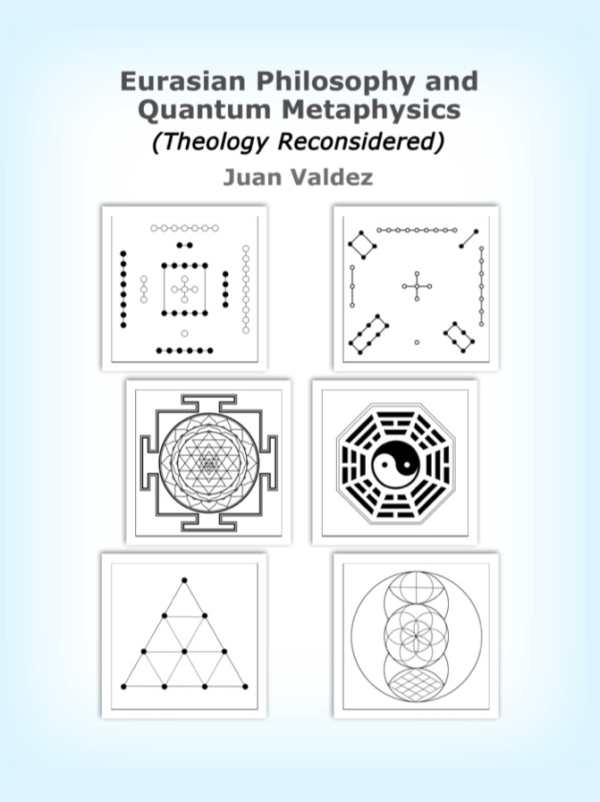
Eurasian Philosophy and Quantum Metaphysics
(Theology Reconsidered)
Eurasian Philosophy and Quantum Metaphysics models a synthesis between Western science and Eastern spirituality—worldviews that it claims are fated to merge.
Juan Valdez’s exhaustive reference text Eurasian Philosophy and Quantum Metaphysics analyzes the relationships between philosophy, science, and religion, from the dawn of human thought to the present.
The book is composed of five parts, concentrating on creation stories, philosophy, religion and science, mysticism, and metaphysics—each massive subjects in their own right. Still, there’s a clear progression of ideas throughout, leading to the book’s ultimate call for a reunification of science and religion.
The book features an extensive history of yoga and other streams of Eastern thought as well as a detailed tour of the history of Western philosophy and science. It includes a great deal of information on ancient texts and on their relationships to the development of ancient religions. In its final sections the book makes the argument that quantum physics defies objective analysis and makes classical physics obsolete, clearing the way for a new synthesis of religious belief and scientific practice that would echo the sort of Aristotelian unity of disciplines that predated the modern era. This is an interesting view, and there is ample historical background on the history of science, Eastern and Western philosophy, religion, and even psychology presented, but in the end the book does not tie these strands together. While the book makes a case that there is a “blind spot” toward values and ethics that lay at the heart of the Enlightenment, pointing out that deficiency is not the same as proving that the solution is a new theological system.
The book makes overly broad assumptions and declarations, such as that “Jesus’s message was in many respects lost” and that “with the loss of God … there was a break in the knowledge and belief in the interconnectedness of humanity” without backing them up with evidence. The book’s footnotes and references represent some support for its ideas, but these sources are nonetheless limited and insufficient. Further, many reference pages and Wikipedia articles rather than more authoritative sources.
While the prose is generally accessible, it includes distracting idiosyncrasies. The phrase “so-called” is used too often. The text is saturated with quotation marks that cast ordinary terms, including history, objectivity, and facts, in a skeptical light, and some terms are placed in italics without explanation. Overlong sentences lead to a breathless progression that undermines the book’s credibility.
Eurasian Philosophy and Quantum Metaphysics models a synthesis between Western science and Eastern spirituality—worldviews that it claims are fated to merge.
Reviewed by
Matt Benzing
Disclosure: This article is not an endorsement, but a review. The publisher of this book provided free copies of the book and paid a small fee to have their book reviewed by a professional reviewer. Foreword Reviews and Clarion Reviews make no guarantee that the publisher will receive a positive review. Foreword Magazine, Inc. is disclosing this in accordance with the Federal Trade Commission’s 16 CFR, Part 255.
